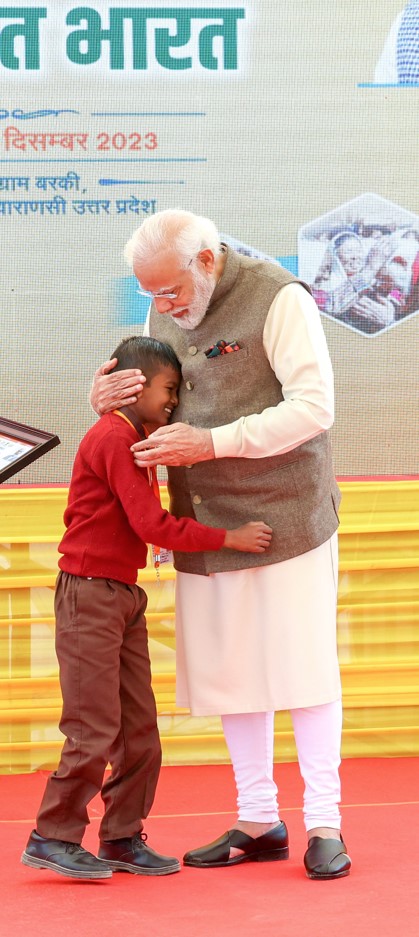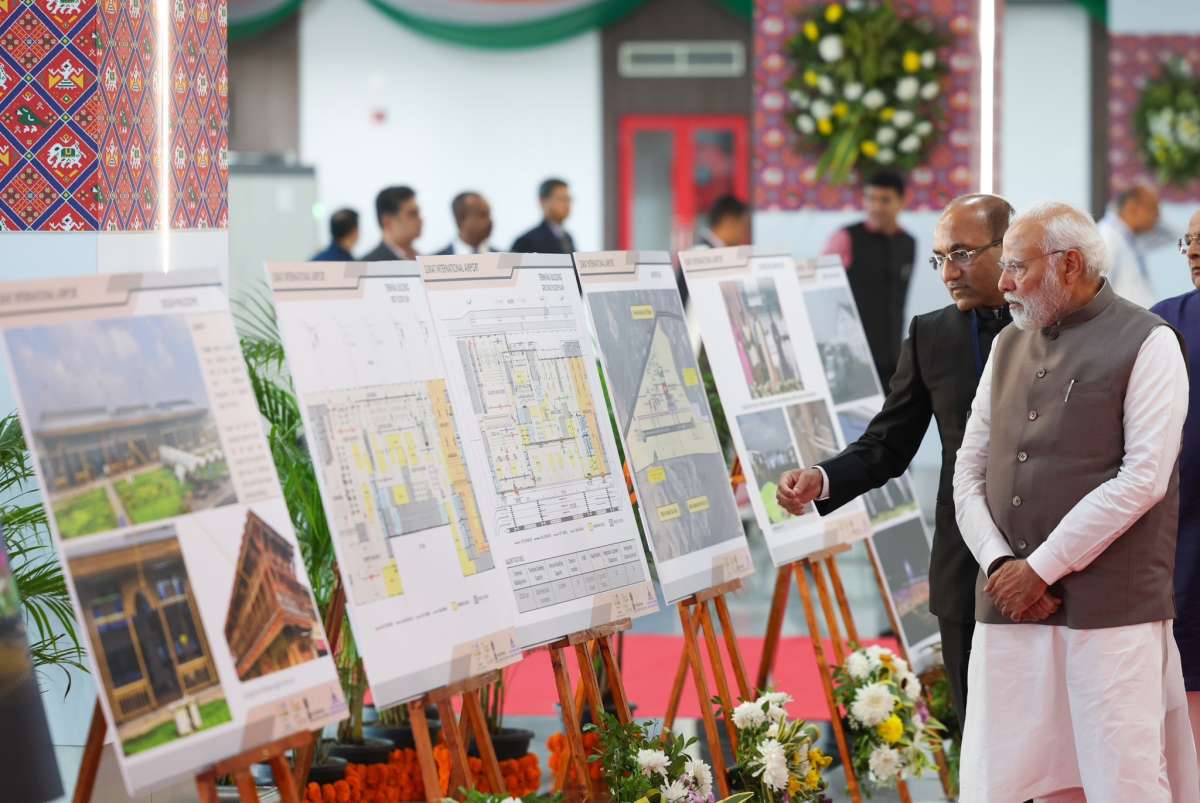In an interview with a UK-based daily, Prime Minister Modi says he was “very confident of victory”, invoking his government’s track record in bringing “solid change in the common man’s life”…reports Asian Lite News
Exuding confidence in returning to his 7 Lok Kalyan Marg residence for a third, straight term in office, Prime Minister Narendra Modi said his fellow citizens have come to realise that the country is poised for a giant leap and want their aspirations to take wings at the earliest.
The BJP swept three heartland states — Madhya Pradesh, Rajasthan and Chhattisgarh — that went to Assembly polls last month, building a good head of steam and electoral momentum going into the Lok Sabha polls next year.
In an interview with the UK-based daily Financial Times, Prime Minister Modi said the Indians now appreciate and acknowledge that the country is on the cusp of take-off and want “this flight to be expedited”.
His remark is being seen in the context of the next general elections, which are scheduled to be held between April and May 2024.
PM Modi said he was “very confident of victory”, invoking his government’s track record in bringing “solid change in the common man’s life”.
“Today, the people of India have very different aspirations from the ones they had 10 years back,” PM Modi said in the interview, adding, “They realise that our nation is on the cusp of a take-off. They want this flight to be expedited, and they know the best party to ensure this is the one which brought them this far.”
In the recent Assembly elections to five states, the BJP, with PM Modi at the front and centre of its campaign pitch, won resounding mandates in the heartland states, stumping not just their rivals but also some pollsters who had predicted tight races in MP, Chhattisgarh and Rajasthan.
The BJP swept Rajasthan, defying exit-poll projections of a tight race and winning 115 seats. The Congress came a distant second with 69 seats.
A first-time MLA from Sanganer, Bhajan Lal Sharma, took the oath as the Rajasthan chief minister on December 15.
Diya Kumari and Prem Chand Bairwa were also sworn in as deputy chief ministers of the desert state.
In neighbouring Chhattisgarh, Vishnu Sai, who won four consecutive terms in the Lok Sabha from the Raigarh constituency from 1999 to 2014, was sworn in as chief minister on December 13.
Of the 90 assembly constituencies in Chhattisgarh, the BJP bagged 54 while the tally of the incumbent, Congress, was reduced to 35.
In Madhya Pradesh, the BJP, despite battling close to 20 years of anti-incumbency, won a rousing mandate, bagging 163 seats, while the Congress saw its tally drop to 66 seats.
BJP MLA Mohan Yadav, another surprise pick by the party top brass for CM, was also administered his oath of office on December 13.
Fellow party leaders Jagdish Devda and Rajendra Shukla took oath as the deputy chief ministers of the state.
Modi’s opponents worry that he would use a third-term victory, especially if the BJP wins a large majority, to shred secular values irrevocably, possibly by amending the constitution to make India an explicitly Hindu republic.
The claims of democratic backsliding — which the BJP rejects — have alarmed some observers in India and overseas at a time when leaders around the world are betting heavily on the country as a geopolitical and economic partner.
In a rare interview and additional written responses, the prime minister addressed some pointed questions, including on the status of India’s Muslim minority, friction with the US and Canada caused by alleged plots for extrajudicial killings and constitutional amendment — though he brushed aside criticisms of his government’s economic and democratic record.

To Modi and his supporters, such concerns are little more than the refrain of a chattering class out of touch with the India he is building, one that caters for a majority that they claim had long been sidelined in Indian politics.
“Our critics are entitled to their opinions and the freedom to express them. However, there is a fundamental issue with such allegations, which often appear as criticisms,” he says about concerns over the health of Indian democracy. “These claims not only insult the intelligence of the Indian people but also underestimate their deep commitment to values like diversity and democracy.”
“Any talk of amending the constitution is meaningless,” he adds.
The “most transformative steps” undertaken by his government, from a “Clean India” nationwide toilet-building campaign to bringing nearly 1bn people online through a path-breaking digital public infrastructure push, Modi says, “have been realised without amending the constitution but through public participation”.
ALSO READ-‘India Supports Free Movement of Commercial Shipping’

